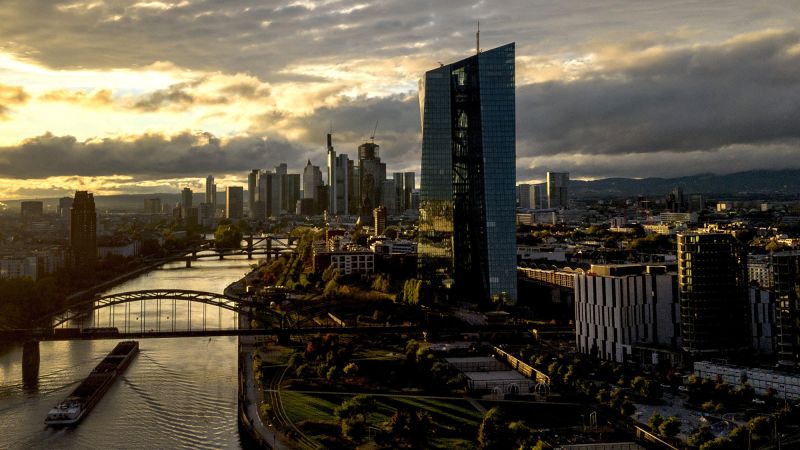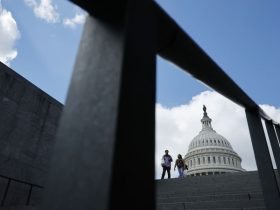The European Central Bank (ECB) held off raising interest rates Thursday for the first time in 15 months as evidence mounts of a deepening economic downturn in Europe.
The ECB kept the benchmark interest rate in the 20 countries that use the euro at 4%, its highest level since the launch of the currency in 1999.
“Inflation is still expected to stay too high for too long, and domestic price pressures remain strong,” the central bank said in a statement. “At the same time, inflation dropped markedly in September… and most measures of underlying inflation have continued to ease.”
The decision to pause after 10 consecutive rate hikes follows a series of data showing a continued decline in inflation and a further slowdown in economic activity.
A survey published Tuesday of euro area companies in manufacturing and services showed a steep decline in output as demand weakened. Companies cut jobs as a result, marking the first drop in headcount since the Covid-19 lockdowns of early 2021, according to the Purchasing Managers’ Index (PMI).
The index dropped to 46.5 in October, from 47.2 in September, a 35-month low. A reading below 50 indicates a contraction.
“In the eurozone, things are moving from bad to worse,” said Cyrus de la Rubia, chief economist at Hamburg Commercial Bank, which has partnered with S&P Global to produce the PMI data. “We wouldn’t be caught off guard to see a mild recession in the eurozone in the second half of this year.”
Germany, Europe’s biggest economy, may have already slipped back into recession after a brief recovery in the second quarter. Manufacturing output has been declining for months and October saw a renewed decline in services activity, according to a separate PMI survey.
“There is much to suggest that a recession in Germany is well underway,” de la Rubia said this week.
Separately, a survey of lenders published by the ECB Tuesday showed that demand for business loans and mortgages continued to fall sharply in the third quarter of the year and by more than banks had expected. The report also found that banks had continued to tighten credit standards across all loan categories.
Past interest rate increases were being “transmitted forcefully into financing conditions,” the ECB said in its statement Thursday. “This is increasingly dampening demand.”
The ECB began hiking rates in July 2022, helping to bring inflation down from a peak of 10.6% a year ago to 4.3% last month.
Read the full article here













Leave a Reply